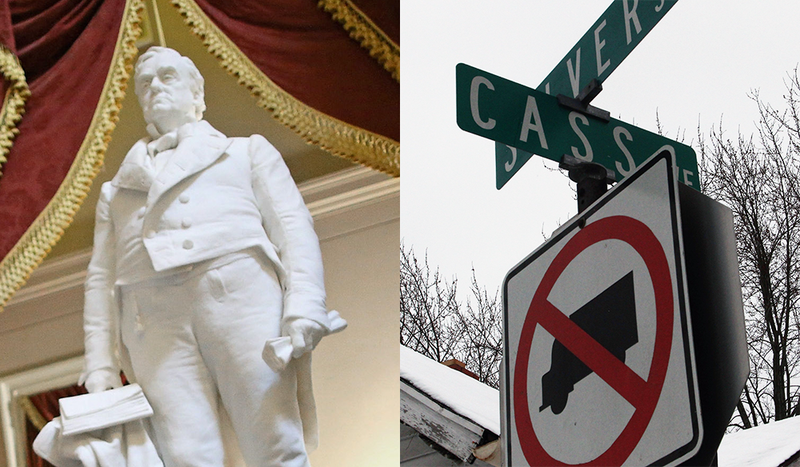
(WWJ) -- Cass Avenue, Cass County, the Cass Corridor, Cass Technological High School…
So many places in Detroit and across Michigan bear the name of Lewis Cass — the military officer, politician, and statesman who served as Michigan’s second territorial governor from 1813 to 1831.
Now, the name and likeness of the former Michigan governor, U.S. Senator and Secretary of State is slowly being scrubbed from some public spaces, due to his controversial history with slavery, and the colonization of Native American land.
During his 18-year tenure as Michigan's governor, Cass -- who was in his early 30s when he took office -- used his influence to negotiate treaties with Native American tribes in the Michigan Territory.
In these deals, Cass convinced the tribes to give up their land to the U.S. in exchange for the promise of a prosperous European lifestyle through farming west of the Mississippi River.
Eventually regarded an architect in Indian removal, Cass was later appointed to President Andrew Jackson’s cabinet, and together they continued to implement policies to displace tribes from their land, resulting in devastating events like the Trail of Tears.
Along with his controversial actions against Native Americans, Cass is remembered as a slave owner who advocated that white residents in U.S. territories be allowed to decide whether or not slavery should be abolished.
Meanwhile, the one-time presidential candidate has also been credited with forging Michigan’s path the statehood, as he worked to promote the territory as a desirable place to live at a time when it was difficult to convince settlers to venture out west.
Because of Cass’s efforts to populate the Michigan Territory, many places across the the Midwest have long held his name.
But in 2022, Cass and his place in American history are being viewed through a different lens, and in response, a statue of the former Michigan governor is being removed from the U.S. Capitol.
It is instead being replaced by a statue of late Detroit Mayor Coleman A. Young, making him the first Black man to be included in the collection at Statuary Hall.
Michigan Sen. Adam Hollier, who led the resolution that was passed this week to replace Cass with Young, says the former "does not match" the values of Michiganders, and therefore does not belong in the Capitol.
In recent years, Cass's name has also been removed from a Southwest Michigan school district, and Michigan Gov. Gretchen Whitmer renamed Downtown Lansing's Lewis Cass Building to the "Elliott-Larsen Building" in 2020.
Still, as Lewis Cass's controversial actions are reexamined in the present day, the effort to navigate his place in Michigan's history continues.
And though the statue of Cass will no longer be featured in Washington D.C., it will live on, with plans to transport it to a new location in Michigan sometime over the next two or three years. That location has yet-to-be determined.
Subscribe to The Daily J wherever you get your podcasts, including on the Audacy App.

